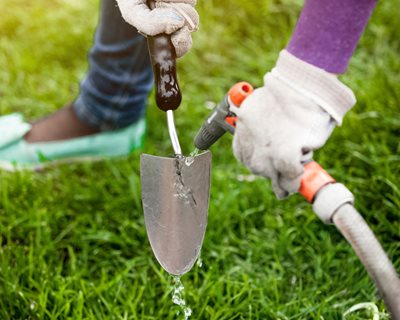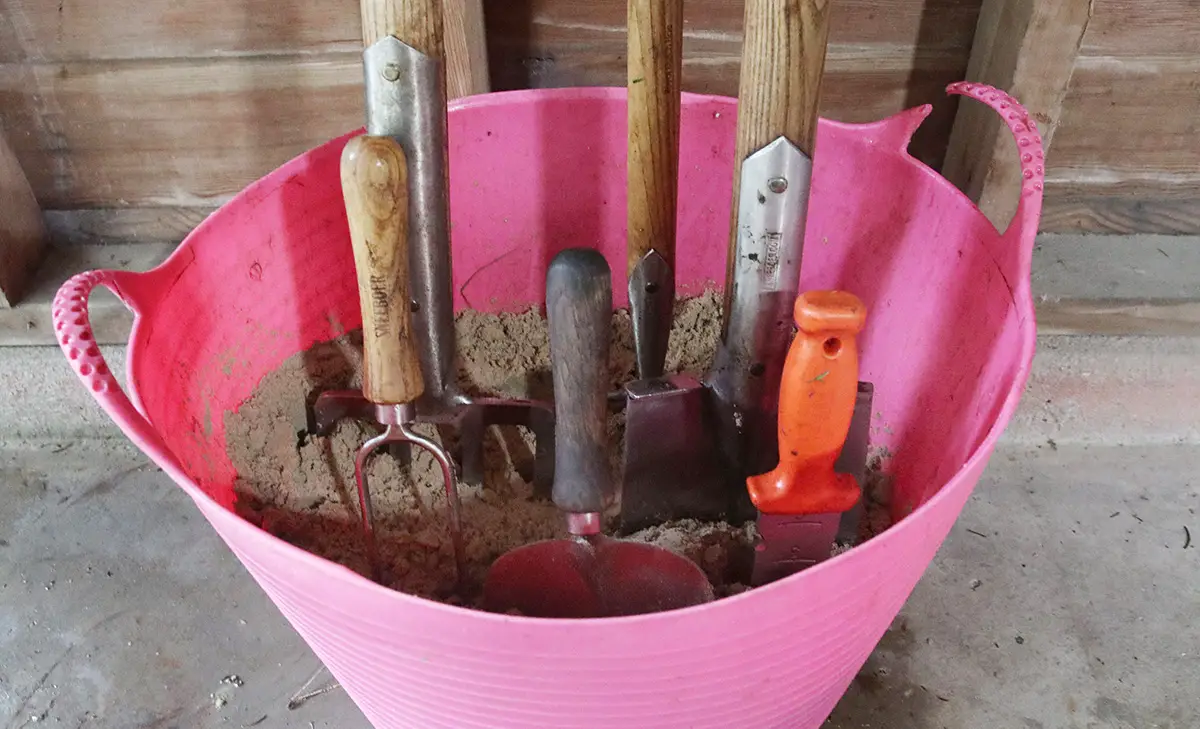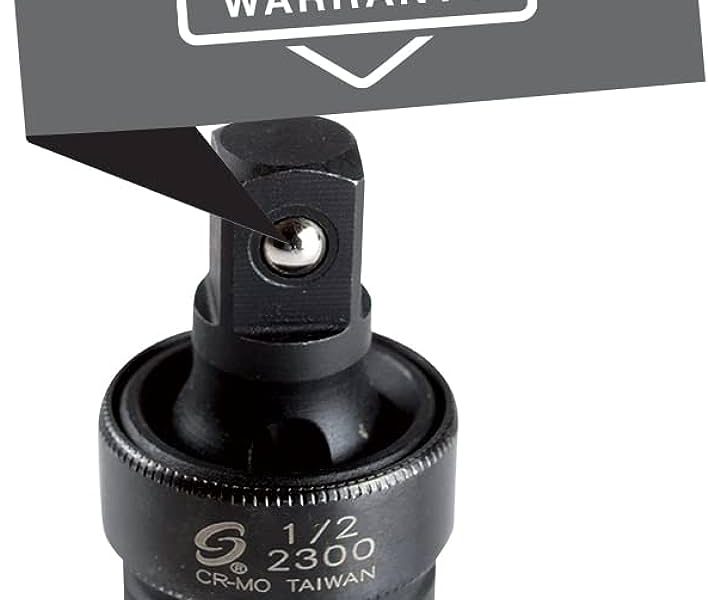To clean and store garden tools to prevent rust, thoroughly wipe them down with a cloth soaked in soapy water, then dry them completely before applying a thin coat of oil or lubricant. Properly storing them in a dry and organized space will further protect them from rusting.
A well-maintained set of garden tools is essential for a successful gardening experience. Rust can not only damage the tools, but it can also hinder their effectiveness. Therefore, it is crucial to properly clean and store your garden tools to prevent rust.
We will discuss easy and effective methods to keep your garden tools in pristine condition. By following these steps, you can ensure that your tools are rust-free and ready to use whenever you need them. So let’s get started and learn how to clean and store your garden tools to prevent rust.
The Importance Of Proper Tool Care
Properly cleaning and storing your garden tools is essential to prevent rust and extend their lifespan. By following the right steps, you can maintain the quality and effectiveness of your tools, ensuring they are always ready for use in your garden.
Protecting Your Investments
It’s no secret that investing in quality garden tools can be quite a substantial expense. To ensure you get the most out of your investment, proper care and maintenance are essential. By taking the time to clean and store your garden tools correctly, you can prevent rust and extend their lifespan significantly.
Here are some tips to help you protect your investments:
- Remove dirt and debris: Before storing your tools, make sure to clean them thoroughly. Remove any dirt, mud, or plant matter that may have accumulated on the blades or handles. You can use a stiff brush or a cloth to get rid of the debris effectively.
- Wipe down with an oiled cloth: After removing the dirt, wipe your tools with an oiled cloth. This will not only help remove any remaining grime but also provide a protective layer against moisture. Use any suitable oil like vegetable oil, linseed oil, or mineral oil for this purpose.
- Sharpen blades if necessary: If you notice that your tool’s blades have become dull, take the opportunity to sharpen them before storing. This will make your next gardening session much more efficient and prevent strain on both you and your tools.
Maintaining Tool Effectiveness
Proper tool care goes beyond preventing rust; it also ensures their effectiveness when you need them in your garden. Here are some essential tips to maintain your garden tools effectively:
- Keep tools dry: One of the primary causes of rust is moisture. After cleaning your tools, make sure they are completely dry before storing them. If your tools were exposed to water during use or cleaning, you can use a towel or air dry them to prevent moisture buildup.
- Store in a dry location: The storage location for your tools plays a crucial role in preventing rust. Choose a dry and well-ventilated area to store them. Avoid storing your tools in damp or humid places like basements or sheds prone to leakage.
- Hang or store upright: Storing your tools hanging or upright ensures that moisture doesn’t accumulate on the blades or heads. Using hooks, pegboards, or tool racks can be an effective way to keep your tools organized, easily accessible, and rust-free.
- Apply a rust inhibitor: For an extra layer of protection against rust, consider applying a rust inhibitor or coating to your tools. There are various commercially available products designed specifically for this purpose. Follow the manufacturer’s instructions for application.
Taking the time to properly clean and store your garden tools is well worth the effort. Not only will it prevent rust, but it will also keep your tools in excellent working condition, saving you money in the long run.
So, make tool care a priority and enjoy many seasons of productive gardening with your well-maintained garden tools.
Cleaning Techniques For Garden Tools
Maintaining your garden tools rust-free is essential. Learn effective cleaning techniques and proper storage methods to prolong the lifespan of your tools.
Garden tools are essential for maintaining and beautifying your outdoor space. However, they are prone to rust if not properly cleaned and stored. To prevent rust and extend the lifespan of your garden tools, it’s crucial to follow the right cleaning techniques.
In this section, we will discuss the various methods you can employ to keep your garden tools free from dirt, debris, stains, and rust.
Removing Dirt And Debris:
- Rinse your garden tools with water to remove loose dirt and debris.
- Use a stiff-bristled brush to scrub away any stubborn dirt or grime.
- Pay close attention to hard-to-reach areas and crevices.
- Dry the tools thoroughly to prevent water from causing rust.
- Store them in a dry place away from moisture.
Using Mild Detergents For Stubborn Stains:
- For tools with stubborn stains, prepare a mixture of warm water and mild detergent.
- Soak the tools in the mixture for a few minutes.
- Scrub the tools gently with a soft brush or sponge.
- Rinse the tools with clean water and dry thoroughly.
- Ensure no residue of detergent is left on the tools.
Employing Wire Brushes For Rust Removal:
- If your garden tools have rust, start by removing loose rust with a wire brush.
- Gently scrub the rusted areas until the loose particles are removed.
- For stubborn rust stains, use a mixture of baking soda and water to create a paste.
- Apply the paste to the affected areas and let it sit for a few minutes.
- Scrub the rusted parts with a wire brush, focusing on removing the rust.
- Rinse the tools and dry them completely to prevent further rusting.
Remember to wear protective gloves while cleaning and handling garden tools. Regularly cleaning your tools after each use and storing them properly will help prevent rust and ensure their longevity. Incorporating these cleaning techniques into your maintenance routine will allow you to enjoy your garden tools for years to come.
Drying And Lubricating Garden Tools
To prevent rust and keep garden tools in good condition, it is important to clean and store them properly. After use, make sure to dry the tools thoroughly and apply a lubricant to prevent moisture and rust. Storing them in a dry and clean space will also help maintain their longevity.
Ensuring Complete Drying To Prevent Rust:
- After using your garden tools, it is essential to ensure they are completely dry before storing them. Here are a few tips to help you achieve this:
- Wipe off any excess moisture: Use a clean cloth or towel to remove any dirt or water from the surface of your tools. This will prevent moisture from causing rust.
- Leave tools in a well-ventilated area: Choose a dry spot with good air circulation to store your tools. Hanging them on a pegboard or rack can help promote drying and prevent moisture buildup.
- Consider using a fan or dehumidifier: For faster drying, you can place your tools near a fan or use a dehumidifier to reduce the humidity in the room. This can be especially useful during humid seasons.
- Inspect for hidden moisture: Check the crevices and tight spots of your tools for any hidden moisture. Use a toothbrush or a small brush to remove any lingering dirt or water.
Applying Lubricants For Smooth Operation:
- Lubricating your garden tools is essential for maintaining their smooth operation and preventing rust. Here are some tips to help you with this process:
- Choose the right lubricant: Use a lubricant specifically designed for gardening tools, such as light machine oil or silicone spray. Avoid using heavy-duty lubricants as they can attract dirt and debris.
- Apply lubricant to moving parts: Focus on the moving parts of your tools, such as hinges, blades, and joints. Apply a small amount of lubricant and work it into the mechanism.
- Remove excess lubricant: After applying the lubricant, wipe off any excess with a clean cloth to prevent it from attracting dirt and dust. This will help to keep your tools clean and in good working condition.
- Regular maintenance: Make lubrication a part of your regular tool maintenance routine. Apply lubricant after each use or at least once a month, depending on the frequency of use.
Remember, proper drying and regular lubrication are vital to prevent rust and keep your garden tools in optimal condition. By following these steps, you can ensure that your tools remain rust-free and ready for use whenever you need them.
Storing Garden Tools To Prevent Rust
For optimal rust prevention, proper cleaning and storage of garden tools is essential. Follow these tips to keep your tools in prime condition: remove dirt and debris, dry thoroughly, apply a rust inhibitor, and store in a clean, dry environment.
Choosing the right storage location:
- Select a dry and well-ventilated area: Find a storage spot for your garden tools that is free from moisture and humidity, as these conditions can accelerate rust formation. A dry and well-ventilated location will help prevent the accumulation of moisture and keep your tools rust-free.
- Avoid direct contact with the ground: Placing your garden tools directly on the ground can expose them to moisture and increase the likelihood of rust. Opt for elevated storage solutions that keep your tools off the ground, such as shelves or tool racks.
- Consider indoor storage: If possible, store your garden tools indoors to provide an extra layer of protection from the elements. An indoor storage area, like a garage or shed, can shield your tools from rain, dew, and other moisture sources.
Utilizing tool racks and hooks:
- Install a tool rack: Installing a tool rack is an efficient way to store your garden tools and minimize the risk of rust. This storage solution allows you to hang your tools, keeping them organized and easily accessible. Look for a sturdy rack that can accommodate various sizes and types of tools.
- Make use of hooks: Utilize hooks to hang your garden tools individually. This not only saves space but also prevents them from coming into contact with each other, reducing the chances of rust formation. Hooks can be attached to walls or the inside of a shed door, providing convenient and organized storage.
Avoiding damp and humid environments:
- Keep tools dry before storage: Before stowing away your garden tools, make sure they are completely dry. Remove any dirt, debris, or moisture that may have accumulated during use. Drying your tools prevents the growth of rust-inducing bacteria and fungi.
- Consider using desiccants: To absorb excess moisture and preserve the condition of your tools, place desiccant packs or silica gel packets in your storage area. These substances help maintain low humidity levels and protect against rust.
- Use a dehumidifier: If you live in an area with high humidity, consider using a dehumidifier in your storage space. This device helps remove excess moisture from the air, creating a drier environment that inhibits rust development.
By following these guidelines for storing your garden tools properly, you can significantly reduce the chance of rust formation and maintain their longevity. Remember to choose the right storage location, utilize tool racks and hooks, and avoid damp and humid environments to keep your tools in optimal condition throughout the year.
Tips For Long-Term Tool Maintenance
Long-term tool maintenance is crucial for preventing rust on garden tools. Ensure you clean and store your tools properly by wiping away dirt, applying rust-resistant oil, and keeping them in a dry place to maintain their longevity and effectiveness.
Regular inspections for damage and rust:
- Check your garden tools regularly for any signs of damage or rust. A quick inspection can help you catch any issues early on and prevent them from worsening.
- Look for any cracks or dents in the handles, as these can affect the tool’s performance and make it unsafe to use.
- Rust can weaken the metal parts of your tools, so make sure to examine them closely. If you spot any rust, take immediate action to prevent it from spreading.
- Remember to clean and dry your tools after each use to minimize the chances of rust formation.
Sharpening and oiling blades:
- Keeping your tools’ blades sharp is essential for efficient gardening. Use a sharpening tool to maintain a sharp cutting edge on your pruners, shears, and other bladed tools.
- Regularly oil the blades after sharpening to prevent rust and ensure smooth operation. Apply a light coat of oil to protect the metal from moisture and other corrosive elements.
- Store your tools with their blades closed or in a closed position to avoid accidents and protect the sharp edges. This will also prevent unnecessary wear on the blades.
Periodic tool sterilization:
- Sterilizing your garden tools periodically helps prevent the spread of diseases and pests among your plants.
- Before moving on to a different plant or area, disinfect your tools by wiping them down with a disinfecting solution or soaking them in a mixture of bleach and water.
- Remember to rinse and dry your tools thoroughly after sterilization to avoid damage or rust caused by moisture.
By following these tips for long-term tool maintenance, you can keep your garden tools in excellent condition and prevent rust from ruining their effectiveness. Regular inspections, sharpening and oiling the blades, and periodic sterilization are essential steps to ensure your tools are ready for every gardening task.

Credit: www.gardendesign.com
Frequently Asked Questions Of How Should I Clean And Store Garden Tools To Prevent Rust?
What Do You Put On Tools To Keep Them From Rusting?
To prevent tools from rusting, apply a thin coating of oil or use a rust prevention spray.
How Do You Store Tools Outside Without Rusting?
To prevent rusting, store tools outside by keeping them clean, dry, and applying a protective coating.
How Do You Store Garden Tools To Prevent Rust?
Store garden tools in a dry place, away from moisture, to prevent rust.
What Is The Best Way To Store Garden Tools?
Properly storing garden tools is important. Keep them in a clean and dry place to prevent rust and damage.
Conclusion
Maintaining the cleanliness and proper storage of garden tools is essential for preventing rust and maximizing their lifespan. By regularly cleaning and drying your tools, removing any dirt or debris, and applying a protective coating, such as oil or wax, you can create a barrier against moisture and rust formation.
Additionally, storing your tools in a cool and dry place, away from humidity and extreme temperatures, will further help to prevent rust. Remember to keep your tools organized and protected by using tool racks, hooks, or storage containers to avoid any unnecessary contact with moisture or other metals that could cause rust.
By implementing these simple and effective cleaning and storage methods, you can ensure that your garden tools stay in prime condition for years to come, saving you time and money in the long run. Happy gardening!


